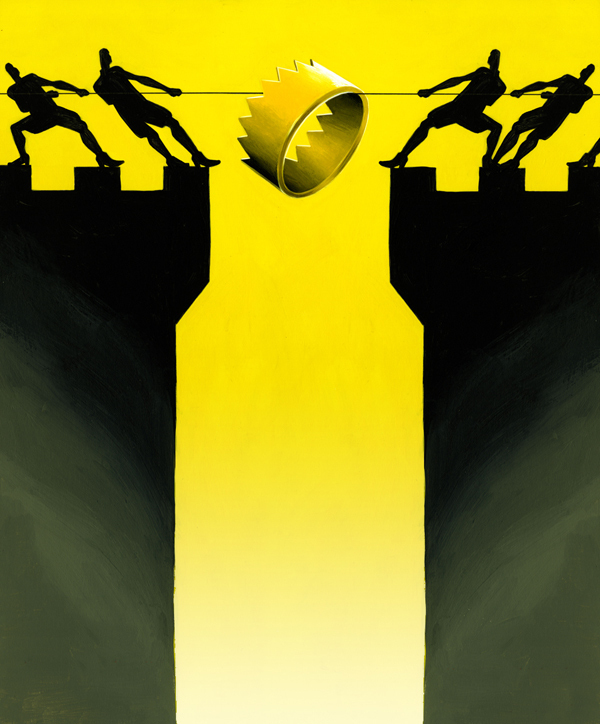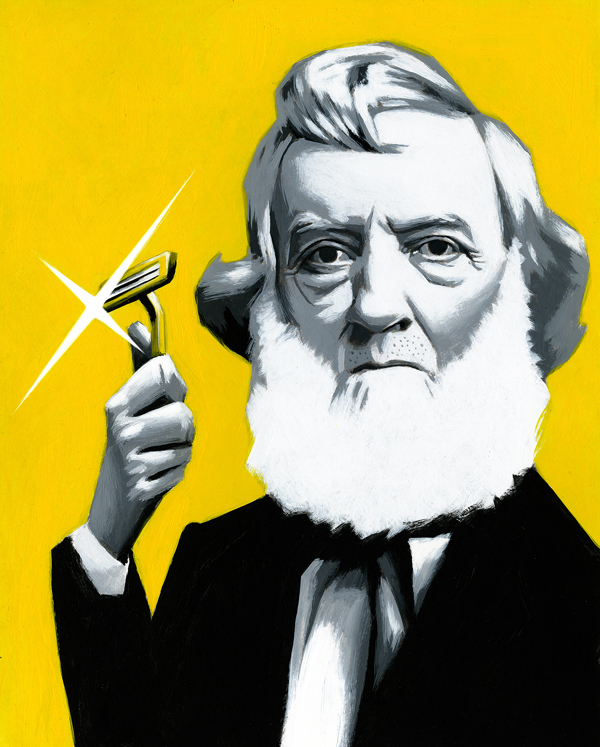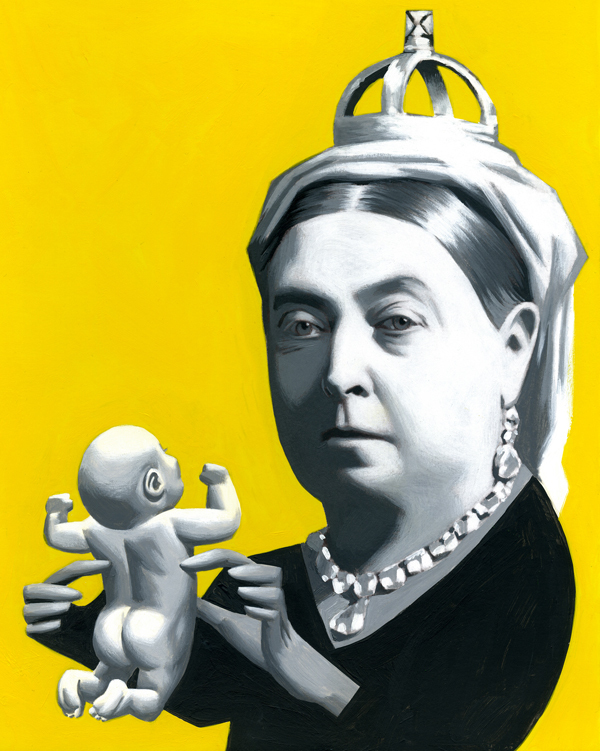Wall Street Journal column
APRIL 29, 2014
Here's a few pieces from a column called "Historically speaking", written by Dr. Amanda Foreman. It's bi-weekly, and draws on behaviors of historical figures to illuminate similar behavior in modern contemporary society. That sometimes ends up being a rather straightforward portrait of said figure(s), but can also be purely conceptual (and all the grey areas in between).
Very fun gig!
AD on this is Keith Webb.
Very fun gig!
AD on this is Keith Webb.

This is Lt.Gen. "Chesty" Puller. During the Korean War, he was ordered to break out of Chosin Reservoir against a force of 80,000 PLA soldiers and open an escape route to Hungnam port. Having succeeded and lost nary a soldier in the process, Chesty refused to call the retreat a defeat, let alone a retreat. He ordered reporters to “Remember, whatever you write, this was no retreat. All that happened was we found more Chinese behind us than in front of us. So we about-faced and attacked.â€
With a resurgent North Korea under Kim Jong Un once again threatening to destabilize the region, this is basically about the importance of great leaders in times of conflict.

About the advent of the new royal baby, what it might be like for the brits when, after a long line of Queens, they'll again have a King on the throne (but more about the fierce struggle over the British Crown throughout history).

Our 19th century forebears were, apparently, rather intrigued with Spontaneous Human Combustion (Dickens apparently strongly believed in it...) So far, all attempts at a scientific explanation proved futile.
>Spinal Tap joke goes here<.

Biological warfare has apparently been used since ancient times. The Chinese were experts at the art of producing toxic smoke. The Hittites used plague-carrying donkeys. The Ancient Greeks poisoned their enemies’ water supply. And, live scorpion bombs, anyone?
Apparently, our appetite for mass destruction remains the same it was at the dawn of civilization.

On the longstanding, somewhat uneasy relationship between the inhabitants of the British Isles and personal hygiene.

About the headless man being an popular motif in stories throughout the ages and in every culture.

Gideon Welles, Lincoln's Naval Secretary, for an article about trends in and importance of facial hair throughout history.

On new Year's resolutions (Here's Ben with his list of 13 virtues he famously devised at the age of twenty- and failed to follow about as many times).

On the rather tumultuous history of divorce (or break-ups in general).
Here's the most notorious breaker-upper of his time, Henry VIII.

About bad weather being the oldest excuse in history to avoid exercise.
Charles Dickens, however, was a manly man and cherished brisk walks in the snow and ice.

A piece about people's fascination with soothsayers, the accuracy of their predictions- and Caesar famously ignoring his.

On extinctions through the ages, natural or man-made, and the importance of preserving what's left.
One such attempt, that unfortunately failed, but laid the groundwork for the great national parks, was the protection of the Passenger Pigeon that used to roam the US in giant flocks. This is Martha, the last survivor, that died in a Cincinnati zoo in the early 1900s.

About revolutionary war poetry, especially the ‘Concord Hymn’ by Ralph Waldo Emerson. And the power it wields to inspire people in times of turmoil.

Queen Victoria. Not exactly the poster child of motherliness. Yet one of the first to freely admit to having used Chloroform in childbirth. At the time, it was still considered (mostly by clerics, of course) a woman's god given duty to suffer through the pains of giving birth. A small step in changing the traditional role of the woman as mother and unpaid cook and housekeeper.
© 2024 Thomas Fuchs
